Health care spending in China
As quality of life becomes more important, healthcare is no longer just a personal need, but has become an important part of economic growth. In China, this trend is booming - with people willing to spend more to protect their health, and businesses seeing it as a fertile ground for growth.
Statistics show that in the first three quarters of this year, Chinese consumers spent an average of about $300 - equivalent to 8.9% of total personal expenditure - on health care, and this number continues to increase. According to a survey by McKinsey, 64% of Chinese consumers said they would maintain or even increase their health spending, even if their incomes decreased. This strong and sustainable spending demand promises to open up a huge growth space for businesses in the health care sector in this country.
At the China International Import Expo recently held in Shanghai, the healthcare sector was a notable highlight. Chinese and foreign enterprises brought advanced healthcare products and technologies to meet the booming demand of a market that is increasingly concerned about health and healthy lifestyles.
"This is a huge market, with a large population and a growing economy. I think as society progresses and the economy continues to grow, people's health awareness will also increase. Therefore, people are paying more and more attention to overall health care," said Jason Liu, CEO of Intuitive Fosun.
China’s growing elderly population is seen as a key factor. By the end of 2024, China will have 300 million people aged 60 or older, accounting for 22% of the total population. This means there is a huge demand not only for medical equipment, pharmaceuticals, dietary supplements, but also for specialist services for the elderly.
"This trend is becoming very urgent. With the aging population increasing, we are targeting patients aged 80 to 90. They need some important services, such as minimally invasive treatments. In addition, we also promote the management and use of medical data locally to better serve patients," said Mr. Ben Cheong, Senior Vice President, Edwards Lifesciences.
The size of the silver economy, serving the elderly in China, is forecast to increase from 7,000 billion yuan in 2025 to nearly 50,000 billion yuan in 2050. This is expected to be an important growth driver for the healthcare industry in the country of a billion people.

During the period 2026 - 2030, Chinese authorities aim to strengthen medical and health care services to increase the average life expectancy of people from 79 years to about 80 years.
China's healthcare market attracts investment
While the demand for health care is growing rapidly, the Chinese government is also accelerating policies to support the health sector. During the period of 2026 - 2030, Chinese authorities aim to strengthen medical and health care services to increase the average life expectancy of people from 79 years to about 80 years. These orientations are making health care one of the fields attracting the strongest investment, from both domestic and foreign enterprises.
Supported by policies that encourage research and development (R&D) and a more open business environment, Chinese companies are continuously launching new medical products that compete on both price and technology, dominating the domestic market and gradually expanding globally. According to Frost & Sullivan, the size of China's medical device market could nearly double - from $132 billion in 2024 to nearly $253 billion in 2035.
At the same time, big international names such as AstraZeneca, Merck and Bayer are also expanding long-term investments in research and development centers for new products in China, in order to take full advantage of policies to shorten drug approval processes and investment incentives in the high-tech medical field.
Technological innovation drives healthcare trends in China
With a large market like China, promoting modern and convenient health care services for each citizen is not an easy task. Therefore, technology is considered the leading solution, with digital services along with advanced technology solutions being increasingly expanded, becoming the leading trend in the health care industry of the billion-people country.
At the recent China Import and Export Fair in Guangdong, for the first time, organizers dedicated an exhibition area to advanced medical and smart healthcare products and services such as medical robots, smart diagnostic systems and health monitoring.
Among them, the AI chromosome mapping technology of a Hangzhou-based startup has attracted much attention. This technology is now present in more than 400 hospitals across China and has received orders from many foreign medical facilities.
Mr. Song Ning - Founder, Diagens Biotechnology Company said: "With traditional microscopy technology, doctors need to count each chromosome manually, analyzing an image requires 200 clicks. With this device, everything will be completed in just one second with one click... Thanks to that, the time to detect chromosomal abnormalities is shortened from 30 days to only 4 days".
Many other companies also introduced surgical robots and ultra-fast CT scanner systems that help improve treatment accuracy and efficiency, minimize invasiveness and shorten recovery time for patients.
"Systems like this super-fast CT scanner help detect damage in just a few seconds. Stroke patients do not need to be transferred to another department but can have their condition assessed during surgery, saving 30 minutes of emergency treatment time," said an expert.
Other new medical technologies such as remote medical examination and treatment services or digital platforms that monitor health indicators in real time are also becoming increasingly familiar to consumers, helping to significantly improve treatment effectiveness.
Mr. Carl Wu - CEO, United Family Healthcare Private Healthcare System confided: "We have launched a service to support elderly patients at a very low annual cost. There is a family doctor on duty 24/7, ready to support them and their families, manage medical records. Through the WeChat platform, the doctor can advise the patient when to take medicine, or when to come back for diagnosis."
In recent years, China’s healthcare sector has witnessed a major shift from disease treatment to prevention and comprehensive health management. Digitalization of medical data combined with advanced technologies is expected to create convenient, efficient and highly personalized healthcare experiences for people, while expanding China’s medical technology export opportunities.
Source: https://vtv.vn/nhu-cau-cham-soc-suc-khoe-bung-no-tai-trung-quoc-100251111123603476.htm



![[Photo] Chu Noodles - the essence of rice and sunshine](https://vphoto.vietnam.vn/thumb/1200x675/vietnam/resource/IMAGE/2025/11/11/1762846220477_ndo_tl_7-jpg.webp)



![[Photo] Prime Minister Pham Minh Chinh chairs a meeting on housing policy and the real estate market.](https://vphoto.vietnam.vn/thumb/1200x675/vietnam/resource/IMAGE/2025/11/11/1762838719858_dsc-2107-jpg.webp)








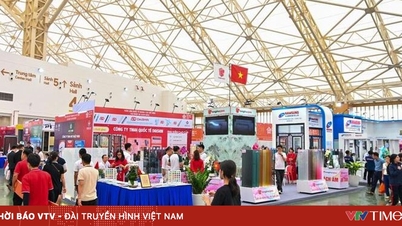


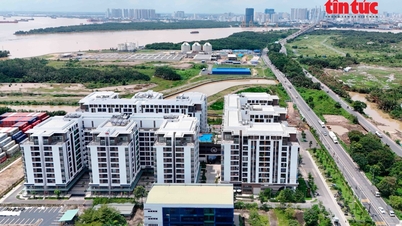
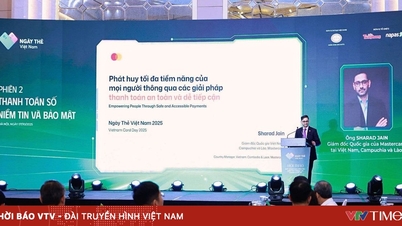
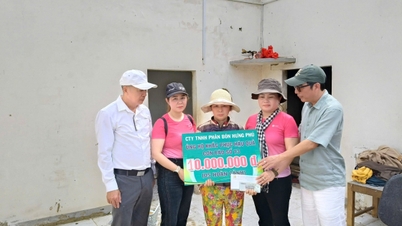

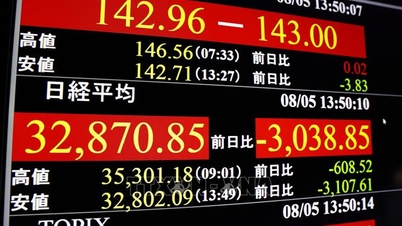









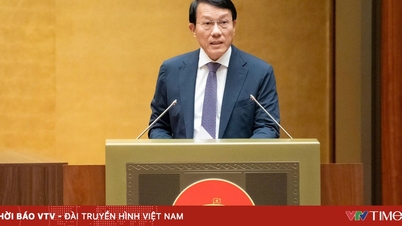























































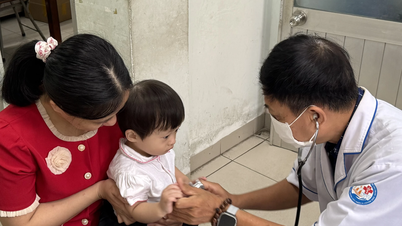










![Dong Nai OCOP transformation: [Article 4] Reaching national standard products](https://vphoto.vietnam.vn/thumb/402x226/vietnam/resource/IMAGE/2025/11/11/1762825820379_4702-cac-san-pham-trai-cay-chung-nhan-ocop-nongnghiep-174649.jpeg)


![Dong Nai OCOP transition: [Article 3] Linking tourism with OCOP product consumption](https://vphoto.vietnam.vn/thumb/402x226/vietnam/resource/IMAGE/2025/11/10/1762739199309_1324-2740-7_n-162543_981.jpeg)






Comment (0)